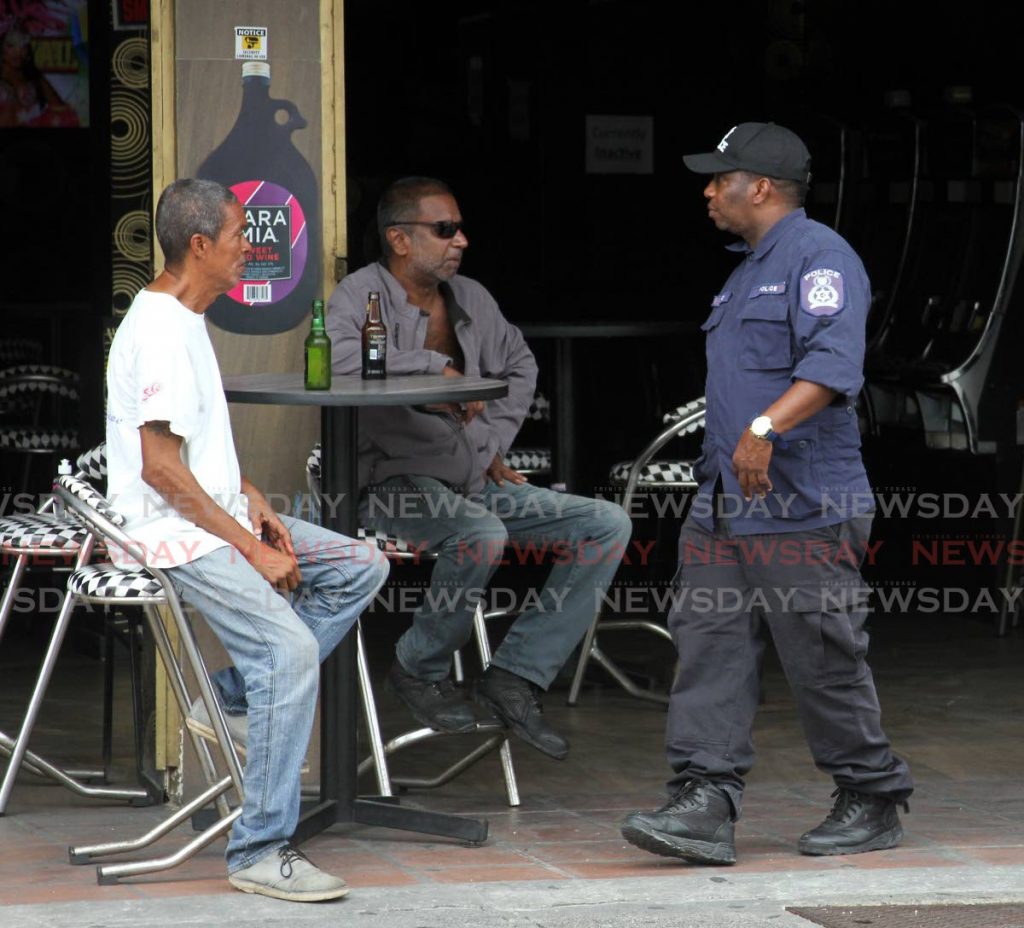MP, bar owners: Covid19 rules on 'private parties' too vague

THERE are calls for the clarification of the covid19 public health regulations on private property and the power of police to enforce the law.
On Wednesday, Police Commissioner Gary Griffith said free private parties on private compounds are allowed.
He said what you could not do was have a private property and ask for a cover charge.
“It now becomes a public place. So you can't have an open house where you have alcohol being sold, consumed and (people) paying a cover charge. It no longer becomes a private property because you're actually charging members of the public to enter.
“If you have your private party where you have invited individuals, it can make it difficult,” Griffith explained.
He was responding to criticisms of the police who only gave a warning to partygoers at a pool party at Bayside Towers, Cocorite.
But after his statement on Wednesday, the commissioner himself came under heavy criticism from the public, who referred to a statement he made in April, that the police did have the authority to stop activities on private property that can affect lives during covid19.
The commissioner and the police were accused of discriminating against certain classes of people, since there have been arrests of people at private residences who were also charged for offences under the public health regulations.
In a release on Thursday, the Barkeepers and Operators Association called on the Attorney General and the CoP for further clarification.
“Also, the association will like to make known that all bars once not open to the general public (are) also considered private property in which persons were also arrested and charged with absolutely no hesitation or warning by the police.
“The BOATT is calling for immediate clarification on this matter as the right of citizens of TT as enshrined in the constitution applies to all citizens and not only a particular percentage of society,” the association said.
While not blaming the police, Chaguanas West MP, attorney Dinesh Rambally said the root of the problem was the “vague, uncertain and imprecise regulations.” He suggested the regulations should be taken to Parliament for debate.
In a statement, Rambally said the problem was not the “existence of any inherently discriminatory approach” by the police, but that the regulations were too vague.
He said vague and imprecise law leads to arbitrary enforcement.
“In other words, when law enforcement officials are given too wide a discretion, there will inevitably be a degree of inconsistency in their enforcement.
“This is not the fault of an individual police officer or the Commissioner of Police, it is the fault of the legislators, in this case the Minister of Health and the Attorney General, who continue to hold the indefensible view that they needed no assistance from Parliament in drafting these regulations,” he said.
Rambally added that the issue was not simply whether the law was broad enough to cover scenarios such as in the Bayside pool party, which was held in a common area of a private residential complex.
“The material question is whether or not the law is sufficiently precise and comprehensive enough to enable citizens to understand what conduct is expected of them and to enable the police to apply the law in an equitable fashion,” he added.
In April, Griffith said section 133 of the public health ordinance gave the police to stop activities on private property.
“So, to those who try to be relevant and influence others into believing that you can commit irresponsible and even illegal acts in their own home during this period that can affect lives and state that the police can do nothing about it, the above authority can easily clarify.
“Yes, we can,” Griffith insisted in April.


Comments
"MP, bar owners: Covid19 rules on ‘private parties’ too vague"